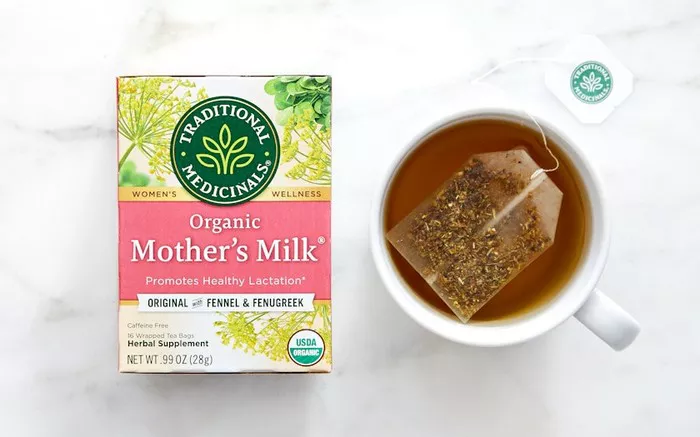For many new mothers, the journey of breastfeeding can be both rewarding and challenging. Ensuring an adequate milk supply is often a top concern, leading many to explore various methods and supplements to support lactation. One popular option is Mother’s Milk Tea, a herbal blend touted for its potential to increase milk production. But the question remains: When is the right time to start drinking it?
Before delving into the timing of incorporating Mother’s Milk Tea into your breastfeeding routine, it’s essential to understand what it is, how it works, and its potential benefits and risks.
Understanding Mother’s Milk Tea
Mother’s Milk Tea typically contains a combination of herbs believed to support lactation. Common ingredients may include fenugreek, blessed thistle, fennel, and anise. These herbs have a long history of traditional use in various cultures to promote milk production and overall breastfeeding success.
While the exact mechanisms of how these herbs work to increase milk supply are not fully understood, some studies suggest they may stimulate the production of prolactin, a hormone involved in milk production. Additionally, these herbs are often rich in nutrients and phytochemicals that could benefit both mother and baby.
Benefits of Mother’s Milk Tea
Proponents of Mother’s Milk Tea claim numerous benefits, including:
1. Increased Milk Supply: Many mothers report a noticeable increase in milk production after regularly consuming Mother’s Milk Tea.
2. Hydration: Breastfeeding can be dehydrating, and drinking plenty of fluids is essential. Mother’s Milk Tea provides a hydrating option while potentially offering additional lactation support.
3. Nutritional Support: The herbs in Mother’s Milk Tea contain vitamins, minerals, and antioxidants that may support overall maternal health.
4. Relaxation: The act of drinking tea itself can be soothing and provide a moment of relaxation for breastfeeding mothers, which can positively impact milk let-down.
Risks and Considerations
While Mother’s Milk Tea is generally considered safe for most breastfeeding mothers when consumed in moderation, there are some important considerations:
1. Allergies and Sensitivities: Some individuals may be allergic or sensitive to certain herbs present in Mother’s Milk Tea. It’s essential to monitor for any adverse reactions.
2. Potential Side Effects: While uncommon, some women may experience side effects such as gastrointestinal upset or allergic reactions.
3. Interactions with Medications: Certain herbs in Mother’s Milk Tea may interact with medications or have contraindications for specific medical conditions. It’s crucial to consult with a healthcare provider before incorporating it into your routine, especially if you have any underlying health concerns or are taking medications.
4. Effectiveness: While many anecdotal reports support the effectiveness of Mother’s Milk Tea, scientific evidence is limited, and results may vary among individuals.
When to Start Drinking Mother’s Milk Tea
Now, returning to the central question: When should you start drinking Mother’s Milk Tea?
The timing of incorporating Mother’s Milk Tea into your breastfeeding journey can vary depending on individual circumstances. Here are some factors to consider:
1. Establishing Breastfeeding: In the initial days and weeks postpartum, the focus should primarily be on establishing breastfeeding and ensuring proper latch and milk transfer. While it’s generally safe to start drinking Mother’s Milk Tea during this time, it may be more beneficial to first focus on establishing a breastfeeding routine and addressing any challenges with the help of a lactation consultant or healthcare provider.
2. Concerns About Milk Supply: If you’re experiencing concerns about milk supply or have noticed a decrease in milk production, you may consider starting Mother’s Milk Tea earlier in your breastfeeding journey. However, it’s essential to address any underlying issues contributing to low milk supply, such as ineffective latch, insufficient feeding frequency, or medical issues, in conjunction with using the tea.
3. Returning to Work or School: For mothers who are planning to return to work or school and are concerned about maintaining their milk supply while away from their baby, incorporating Mother’s Milk Tea into their routine a few weeks before the transition may be beneficial. However, it’s essential to also explore other strategies for pumping and storing breast milk, as well as ensuring adequate support for breastfeeding in the workplace or educational setting.
4. Postpartum Healing: Some mothers may choose to wait until after the initial postpartum period to start drinking Mother’s Milk Tea, focusing instead on recovery and healing. Once they feel more settled into their breastfeeding journey and their bodies have had time to adjust, they may then introduce the tea as a supportive measure.
5. Personal Preference: Ultimately, the decision of when to start drinking Mother’s Milk Tea is a personal one and may depend on individual preferences, beliefs, and experiences. Some mothers may feel inclined to start using it early on, while others may prefer to wait and see how their breastfeeding journey unfolds before incorporating additional supplements.
Conclusion
Mother’s Milk Tea can be a valuable tool for breastfeeding mothers seeking to support their milk supply and overall lactation success. However, the timing of when to start drinking it can vary depending on individual circumstances, preferences, and needs. Whether you choose to incorporate it early in your breastfeeding journey or later on, it’s essential to do so under the guidance of a healthcare provider and in conjunction with addressing any underlying breastfeeding challenges. Ultimately, the goal is to support a positive and fulfilling breastfeeding experience for both mother and baby.


